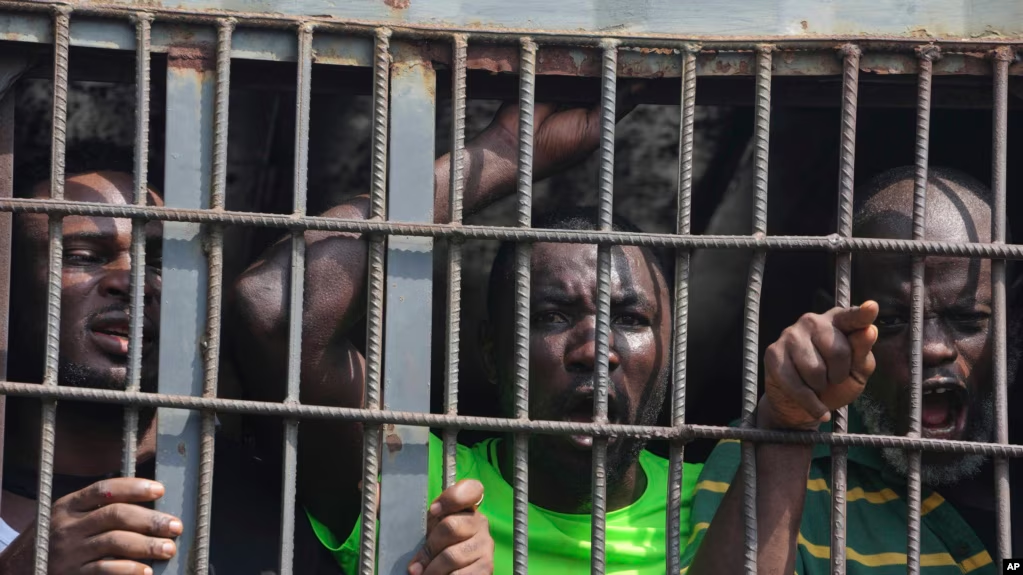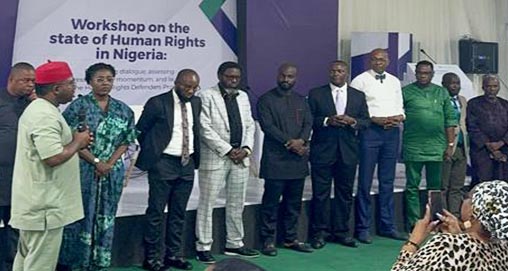Nigeria’s National Human Rights Commission (NHRC) launched a new defenders forum Wednesday to combat escalating rights violations, as the agency reported more than 1,700 kidnappings and 1,500 killings in the first nine months of 2024.

The Human Rights Defenders Forum, established in partnership with the European Union, aims to create a unified platform for rights advocates and enhance civil liberty protections in Africa’s most populous nation.
“We’re gathered here not only to discuss the current state of human rights in Nigeria, but also to start to chart a way forward,” NHRC Executive Director Anthony Ojukwu said during the inauguration. The forum will focus on “safer protection for civil liberties, fosters democratic consolidation and safeguards the fundamental rights of all Nigerians, especially those who stand up for the rights of others.”
The initiative launches amid growing concerns about human rights abuses, including recent crackdowns on antigovernment protesters and the extended detention of juvenile demonstrators. The commission identified security forces as major contributors to rights violations.
“The majority of these violators are the Nigerian police, the military, bandits and parents of children,” said Hilary Ogbonna, a senior NHRC adviser. He noted a surge in sexual and gender-based violence, but emphasized that the 4,300 cases of child abandonment were particularly alarming.
The military and police have not responded to these allegations, though the NHRC recently found the military responsible for infanticide and extrajudicial killings during a 2016 operation in northeastern Borno State.

Damilola Decker, programs officer with the Nigeria-based Global Rights organization, attributed the deteriorating rights situation partly to economic pressures under President Bola Tinubu’s administration.
“What we’re observing under the Tinubu administration is that civic space is under attack, attacks on journalists, attacks on the rights of people to protest,” Decker said. “We’re also seeing economic and sociocultural rights of Nigerians being impacted majorly because of the harsh economic conditions especially related to energy prices.”
The forum’s inaugural meeting addressed various concerns including digital rights, privacy protection, and gender-based violence. Participants also discussed the intersection of rising insecurity and human rights, as the country grapples with widespread kidnappings and killings.
“It’s cascading — crime is on the rise; the state of insecurity is on the increase,” Decker added, highlighting the complex relationship between economic challenges and security issues.
The initiative represents Nigeria’s latest attempt to address systematic human rights violations while fostering collaboration between government agencies and civil society organizations in protecting civil liberties.
VOA



